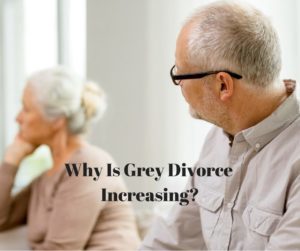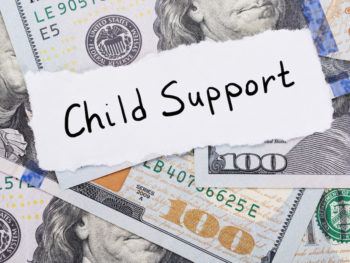Grey Divorce Is Increasing in the US
Vonda’s Comment on Grey Divorce
I have seen the rise in grey divorce since I started practicing family law in 1993, and I’ve wondered about the increase. Harry, the author, points out several factors to which the increase can be attributed.

Anyway, I thought this article was pertinent and interesting, so I wanted to share.
“Why Grey Divorce Is Increasing” By Harry Munsinger, Ph.D.
While the overall divorce rate among Americans dropped over the last 20 years, the divorce rate among older Americans has doubled. Couples over 65 have an even higher divorce rate. More than 25% of current divorces involve couples over 50. Older Americans used to enjoy lower divorce rates compared with young couples, but today older Americans are divorcing at the same rate as the general population. And it isn’t just older couples in their second or third marriage who are divorcing; more than half of all grey divorces involve a first marriage, and more than 55% of grey divorces happen after more than 20 years of marriage. What’s causing this spike in grey divorces?
Fighting Isn’t the Problem
Most grey divorces are not marked by serious discord. Instead, older divorcing couples report they simply drifted apart. Researchers are not certain why older Americans are increasingly turning to divorce and why most of these divorces are initiated by women, but they have some ideas.
Women’s Expectations Have Changed
Women’s expectations of what constitutes a “good” marriage have changed significantly in the last 20 years. Women now want their partner to be their best friend and their marriage relationship to be a major source of happiness. When their spouse can’t meet these heightened expectations, they may divorce him.
Women are Independent
Another likely cause of grey divorce is that many more women are educated, financially independent and crave autonomy. They now realize they can get a divorce because their children are grown, they don’t have much in common with their spouse, they can expect to live at least another 20 years and they can afford to live alone.
Women Have More Options
Older divorced women have more options today with online dating sites specifically designed for them and the stigma of cohabitation largely a thing of the past. Older women no longer need to stay married because the alternative is social rejection and poverty. To a lesser degree the same is true of rejected husbands; a grey divorce isn’t the end of the world for older men. They have productive years ahead, there are plenty of opportunities to meet new people and with the right attitude they can enjoy the same freedom and sense of fulfillment as their former wives. I went through a grey divorce after 45 years of marriage and I can personally verify there is a good life to be had post-divorce.
Grey Divorce Means Freedom
For women with good health and financial resources a grey divorce means freedom, independence and personal fulfillment. However, for older women who are in frail health with limited resources, divorce can drag them into poverty. The average older divorced woman has only 20% of the net assets owned by a married couple of the same age. By contrast, women who were widowed after age 50 possess more than double the wealth of the average grey divorcee, which makes sense because they have now had to share with a divorcing husband.
Infidelity Causes Grey Divorce
Another cause of grey divorce is adultery. The sense of betrayal when someone finds their spouse has been cheating can be overwhelming. Many older Americans are facing this difficult emotional upheaval with courage and emerging from a collaborative divorce with a new sense of freedom and opportunity. But, the shock and transition can be difficult.
The growth in grey divorces presents a challenge and an opportunity for collaborative divorce professionals. This older group is a natural constituency for a collaborative divorce because they are mature, have significant assets and they want to maintain good relationships with their adult children post-divorce. To this end, the collaborative divorce process offers their best hope of maintaining a close relationship with adult children and avoiding the estrangement so often seen among litigated divorced couples and their families.
About Harry Munsinger, Ph.D.
Harry Munsinger practices collaborative and estate law in San Antonio. He has over twenty years experience resolving disputes involving divorce, probate, wills, and trusts. Harry was an adjunct law professor at the University of Texas and St. Mary’s University. He has published several textbooks and over forty psychological and legal articles. Harry has been a forensic psychology expert, a licensed psychologist and a litigator.












Leave a Reply